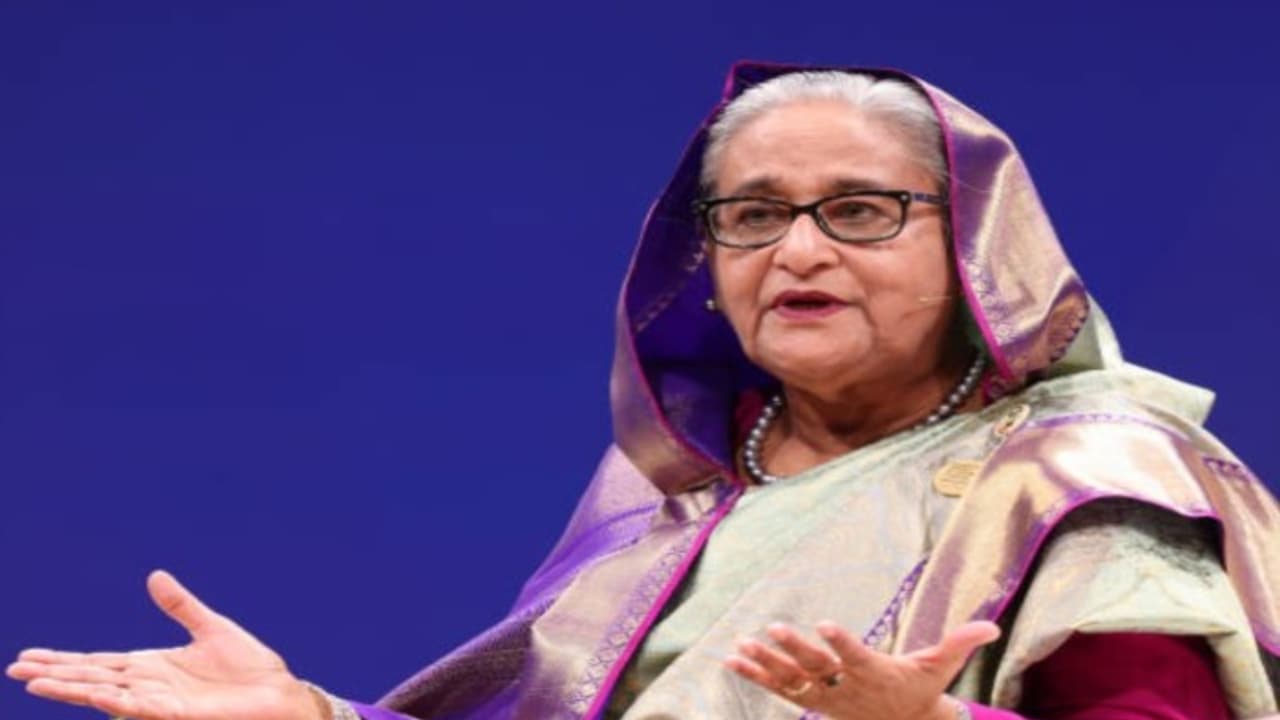Former Bangladesh PM Sheikh Hasina has been formally charged with crimes against humanity for her role in suppressing the July 2024 student uprising. Prosecutors say the violence was planned and coordinated under her direct orders.
Former Bangladesh Prime Minister Sheikh Hasina has been officially charged with crimes against humanity for allegedly ordering a violent crackdown on the student-led uprising that shook the country in July 2024. The formal charges were filed by the International Crimes Tribunal (ICT) on Saturday, following months of investigation.

Hasina, who stepped down in August 2024 after nearly 15 years in power, is currently believed to be living in exile in New Delhi. She is accused of directly instructing security forces, ruling party members, and allied groups to use lethal force against protestors demanding education reforms and democratic rights.
Crackdown was “planned and coordinated”, say prosecutors
Chief Prosecutor Mohammad Tajul Islam told the tribunal that the violence was not spontaneous but "a coordinated, widespread and systematic attack" orchestrated under Hasina’s leadership.
“These killings were not accidental. They were planned. The accused unleashed all law enforcement agencies and her armed party members to crush the uprising,” Islam said.
Evidence presented includes encrypted communications, video footage, and other digital records allegedly showing clear intent to suppress dissent using unlawful force.
81 witnesses, live broadcast of trial
The tribunal has listed 81 individuals as witnesses in the case. The proceedings are being aired live on national television by Bangladesh Television (BTV), marking a rare moment of legal transparency in such a high-profile trial.
Alongside Hasina, two senior officials from her administration, former Home Minister Asaduzzaman Khan Kamal and ex-Inspector General of Police Chowdhury Abdullah Al-Mamun, have also been named as co-accused.
They face charges of abetment, incitement, complicity, facilitation, conspiracy, and failure to prevent mass murder during the July 2024 unrest.
More cases against Hasina
The July 2024 uprising case is not the only legal challenge facing the ousted leader. Hasina is already under trial in two other cases before the same tribunal. One involves allegations of enforced disappearances and extrajudicial killings during her party’s time in power. The other relates to the deadly 2013 crackdown on the Hefazat-e-Islam rally in Motijheel.
The tribunal’s findings could have major implications for Bangladesh’s political landscape, especially if Hasina is convicted. The charges signal a rare attempt to hold a former head of government accountable for alleged state-sponsored violence.
As the trial proceeds, the international community is watching closely, given the broader implications for justice, accountability, and democracy in Bangladesh.


